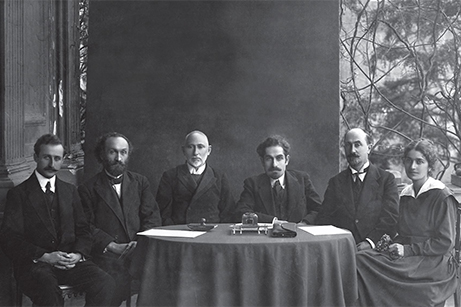Exhibition honours women of Georgia’s first Constituent Assembly in 1919-1921

An exhibition celebrating female members of Georgia’s first independent Constituent Assembly is being held on Wednesday in the central Georgian town Gori.
Organised by the Women’s Information Centre of Georgia (WIC), the exhibition will be hosted by the Sukhishvili Teaching University within the WIC’s project Informed Society and Gender Democracy in Election Process.
The exhibition, tiled Women of the Constituent Assembly 1919-1921, will present historical material of the handful of female members of the Constituent Assembly that ratified the Act of Georgia’s Independence from Russia in 1918 and later adopted the Georgian Republic’s first constitution.
Among the female members of the Assembly were Liza Nakashidze-Bolkvadze, who held the position of chairperson of the Women’s Society established in Georgia’s western Guria region and participant of the 1919 elections as part of Georgia’s Social Democratic Party, and Anna Sologhashvili, the Party’s Library and Editorial Commission member.

Minadora Orjonikidze-Toroshelidze was also a member of the Constituent Assembly. Photo by SOVLAB public archive (Marine Pirtskhalava's collection).
The handful of women of the Assembly actively advocated for Georgia’s independence, as well as on matters of labour and social equality. About women all faced political repressions following Georgia’s takeover by the Soviet Union in 1921, with some of them later executed by authorities for "anti-Soviet activities”.
The work of the 1919 Constituent Assembly laid the foundations for Georgia’s sovereign development over the years to 1921 before the invading Soviet armed forces resulted in the country again losing its short-lived independence.
The exhibition’s organisers said they hoped the display would contribute to increased "gender sensitivity” in the public by focusing on the 1919 Georgian elections that featured women’s political involvement in public affairs.
The material for the one-day exhibition was prepared collaboratively by the WIC and the National Archive of Georgia, with support of the United States Agency for International Development (USAID).
Event organisers said they planned to bring the exhibition to capital Tbilisi.
 Tweet
Tweet  Share
Share